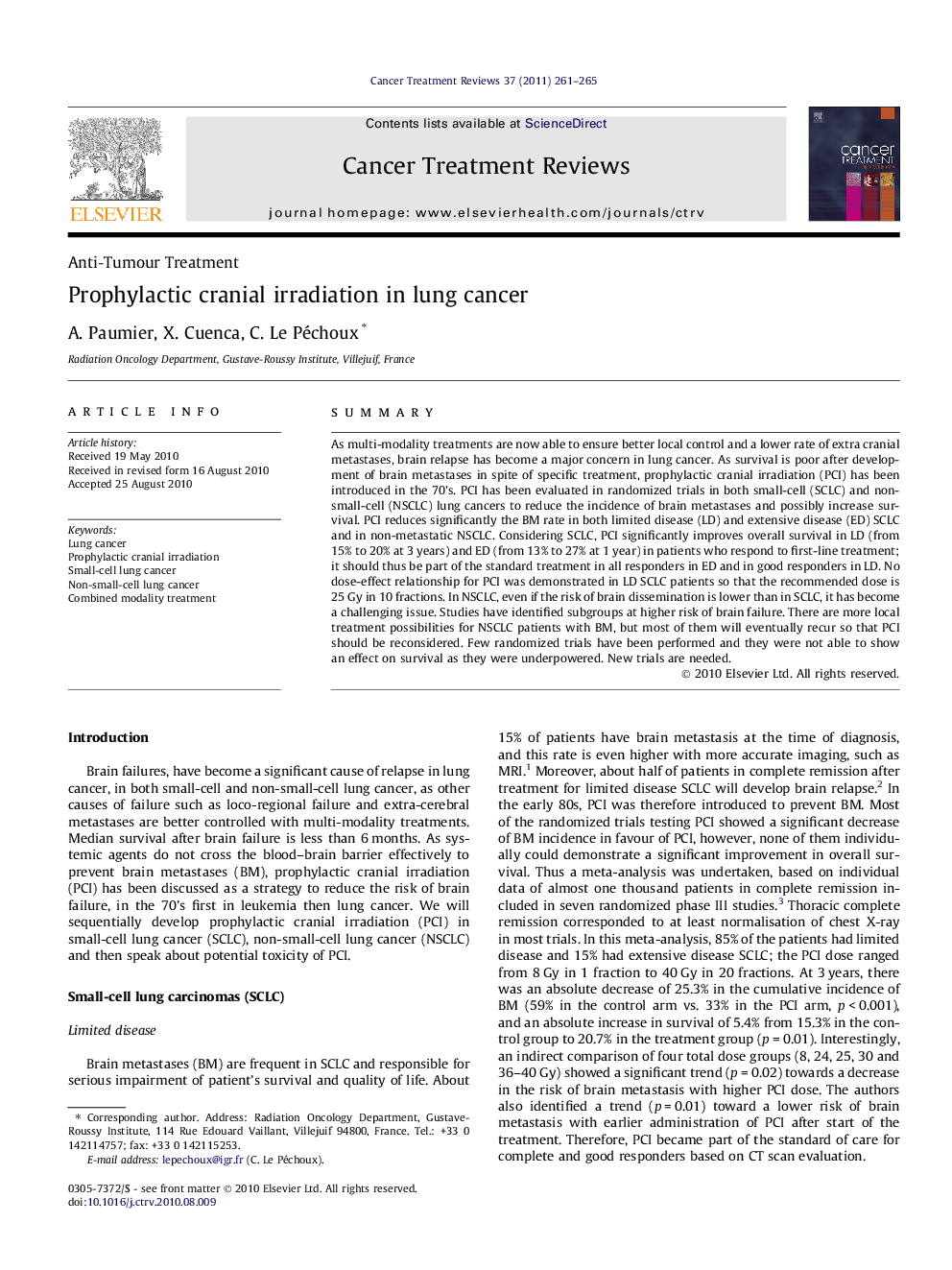| Article ID | Journal | Published Year | Pages | File Type |
|---|---|---|---|---|
| 3980127 | Cancer Treatment Reviews | 2011 | 5 Pages |
SummaryAs multi-modality treatments are now able to ensure better local control and a lower rate of extra cranial metastases, brain relapse has become a major concern in lung cancer. As survival is poor after development of brain metastases in spite of specific treatment, prophylactic cranial irradiation (PCI) has been introduced in the 70’s. PCI has been evaluated in randomized trials in both small-cell (SCLC) and non-small-cell (NSCLC) lung cancers to reduce the incidence of brain metastases and possibly increase survival. PCI reduces significantly the BM rate in both limited disease (LD) and extensive disease (ED) SCLC and in non-metastatic NSCLC. Considering SCLC, PCI significantly improves overall survival in LD (from 15% to 20% at 3 years) and ED (from 13% to 27% at 1 year) in patients who respond to first-line treatment; it should thus be part of the standard treatment in all responders in ED and in good responders in LD. No dose-effect relationship for PCI was demonstrated in LD SCLC patients so that the recommended dose is 25 Gy in 10 fractions. In NSCLC, even if the risk of brain dissemination is lower than in SCLC, it has become a challenging issue. Studies have identified subgroups at higher risk of brain failure. There are more local treatment possibilities for NSCLC patients with BM, but most of them will eventually recur so that PCI should be reconsidered. Few randomized trials have been performed and they were not able to show an effect on survival as they were underpowered. New trials are needed.
